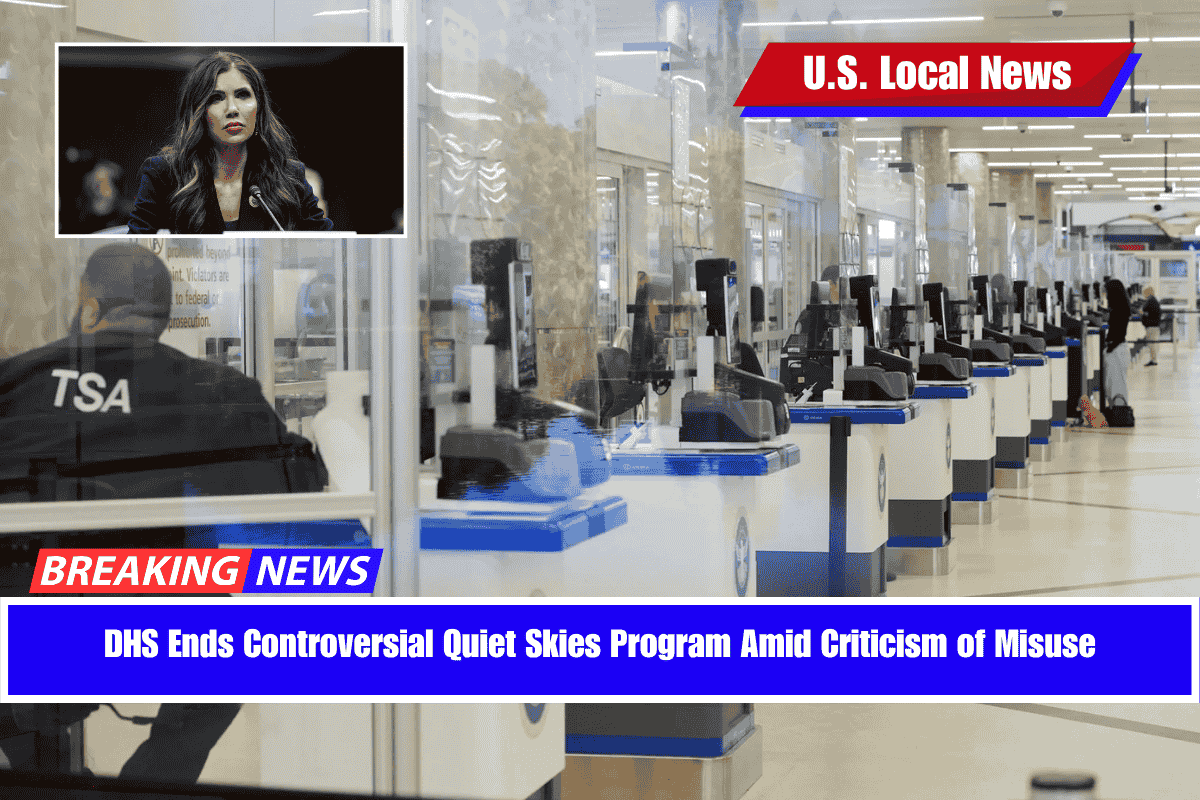On June 5, the Department of Homeland Security (DHS) announced that it would be ending its Quiet Skies surveillance program, which has been heavily criticized since its launch in 2018.
The program, originally designed to track potentially suspicious travelers, has been deemed ineffective in preventing terrorist attacks while costing U.S. taxpayers approximately $200 million per year.
Quiet Skies: A Controversial Surveillance Program
The Quiet Skies program aimed to deploy armed, undercover air marshals to monitor travelers based on behavioral patterns and other indicators of suspicious activity. It sought to identify potential terrorists before they boarded flights by observing their behavior, such as fidgeting or a penetrating stare.
However, the program was widely criticized for potentially masking racial or religious discrimination and using unreliable behavior cues to profile travelers.
The Boston Globe first exposed the program in 2018, sparking immediate backlash. Critics argued that it violated privacy rights and could unfairly target certain racial or religious groups. Lawmakers and civil rights organizations called for the program’s dismantling, citing concerns over its fairness and efficacy.
Allegations of Political Misuse
On June 5, Homeland Security Secretary Kristi Noem condemned the program, calling it a politicized tool that was “weaponized” against political opponents. She claimed that the Quiet Skies watchlist was used to target political adversaries and benefit political allies. “It is clear that the Quiet Skies program was used as a political rolodex of the Biden Administration,” she said in her statement.
Noem also called for a Congressional investigation into potential corruption linked to the program. She emphasized that the program undermined national security and damaged public trust.
The Role of the TSA and Future Plans
Despite the program’s end, Noem assured the public that the Transportation Security Administration (TSA) would continue to maintain its critical functions for aviation security.
She also emphasized that the Trump Administration would return TSA to its core mission: focusing on the safety and security of the traveling public, while ensuring privacy and equal application of the law for all Americans.
Quiet Skies and the Political Fallout
The revelation of the Quiet Skies program’s misuse has led to growing scrutiny of the TSA’s actions. In May, Senator Rand Paul (R-Kentucky) revealed that the TSA had tracked Tulsi Gabbard, the Director of National Intelligence, during the 2024 election, which some Republicans alleged was politically motivated.
Further controversy emerged when DHS accused Senator Jeanne Shaheen (D-New Hampshire) of improperly using her influence to remove her husband, William “Billy” Shaheen, from a TSA watchlist.
The DHS claimed that Shaheen had traveled with a “known or suspected terrorist,” but Celine Atallah, a New England lawyer flagged by the TSA, denied any links to terrorism. Atallah, who was later revealed to be a U.S. citizen and licensed attorney, accused the DHS of trying to smear her name for political purposes.











Leave a Reply